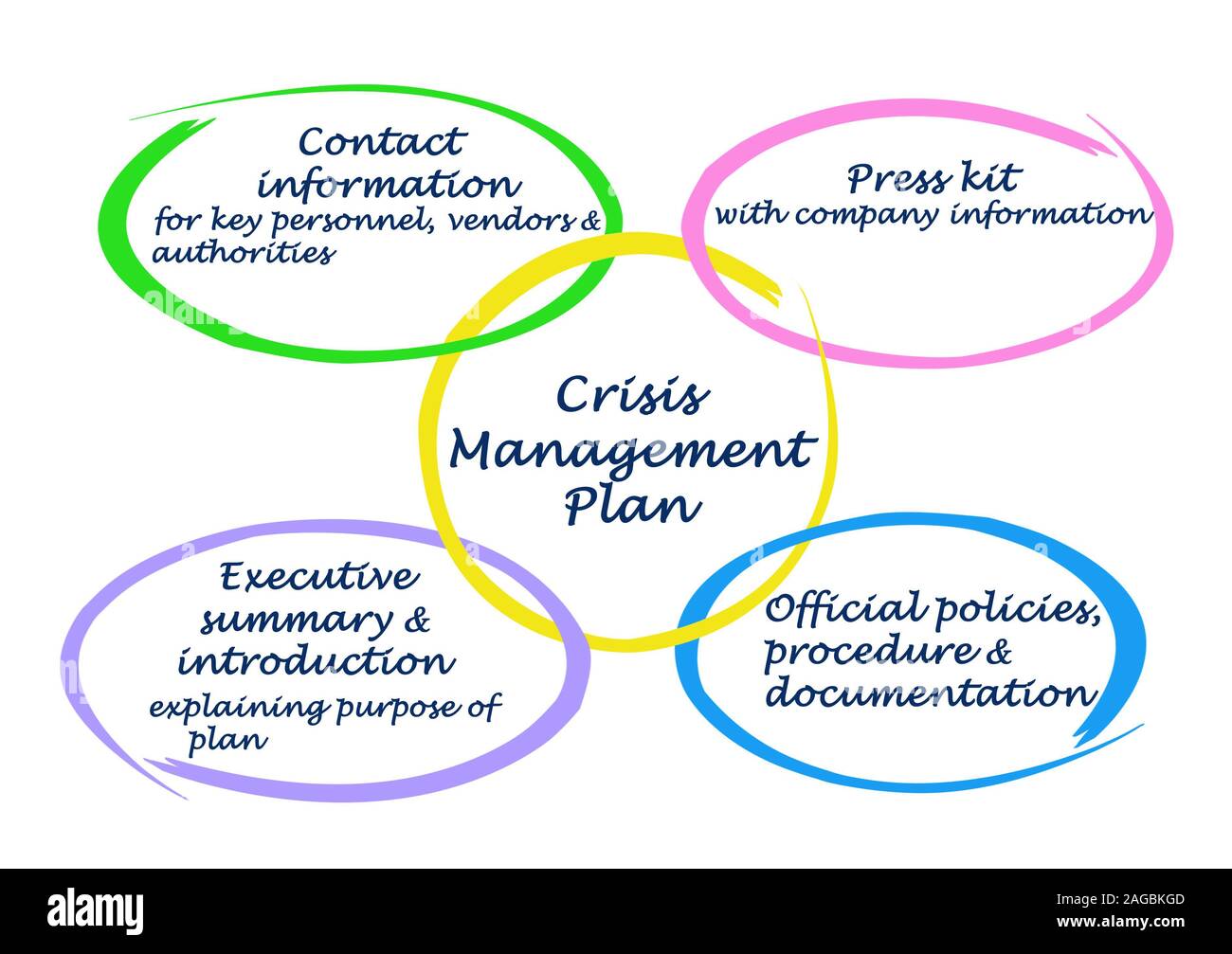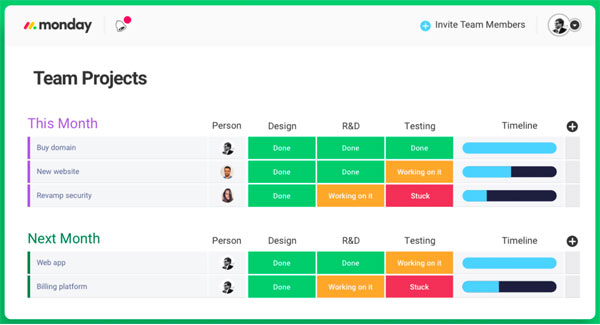
Crisis managers must have several skills. Effective leaders can recognize a crisis before it reaches critical levels. The effects of a slow-moving crisis may not be obvious until much later. The best leadership styles recognize problems early. They are aware of the world's events and keep up to date with customer attitudes. Crisis managers work together to solve the crisis as quickly as they can. A skilled crisis manager is able to help companies manage a crisis and maintain normal operations.
Priorities for crisis managers
Clarity and clarity should be the goal of crisis managers. The team should be comprised of people who are calm and can make clear decisions quickly. People who are detail-oriented and process-oriented should be part of the team. A clear chain of command is essential. Also, the team should be trained properly to accomplish its assigned tasks. In the event of a crisis, it is important to restructure the team according to the specific needs of the crisis.

Characteristics of crisis management specialists
You need to have both the skills and experience necessary to be a competent crisis management specialist. This type of professional should be highly professional, have plenty of hands-on training, and be able to communicate and gather input effectively. He or she must also have excellent active listening skills. These types of people are able to manage chaos and stress while still remaining calm and focussed. This person should also be able to communicate effectively with other people in different departments or roles.
Crisis managers employ these techniques
There are numerous techniques used by crisis managers to successfully handle a critical incident. Planning and preparation are key to crisis management. The resilience concept is what top crisis managers use to guide their actions. It refers to being able to bounce back quickly after a difficult situation, and also to being vulnerable to potentially dangerous events. High-performing managers have sharp memory and are able make quick decisions. This allows them to react more quickly and accurately. A manager's ability to accept vulnerability allows them to plan for the worst.
Organizational impact of a crisis
The Impact of Crisis on an Organization examines the ways in which a business can be damaged during a crisis and how it can be prevented or mitigated. This book examines how crisis can impact a company's reputation and value. All commercial companies operate in a digital age. Trust is low and high expectations are placed on good governance. Complex communication is required between companies and stakeholders. Traditional target audiences are fragmented into social communities, and issues can be played out quickly.

Management skills are required by crisis managers
A good crisis manager will have several important skills, including communication. These skills are crucial for any type of crisis management, regardless of how small or large. For the situation to be resolved quickly and efficiently, the manager will need to communicate clearly. Managers must also be able to maintain calm, take quick decisions, and delegate tasks. These skills can be combined to make crisis managers more likely to achieve positive outcomes.
FAQ
What role can a manager fill in a company’s management?
Different industries have different roles for managers.
The manager oversees the day-to-day activities of a company.
He/she makes sure that the company meets its financial obligations, and that it produces goods or services that customers desire.
He/she ensures employees adhere to all regulations and quality standards.
He/she oversees marketing campaigns and plans new products.
It seems so difficult sometimes to make sound business decisions.
Complex systems are often complex and have many moving parts. They require people to manage multiple priorities and deal with uncertainty and complexity.
To make good decisions, you must understand how these factors affect the entire system.
This requires you to think about the purpose and function of each component. Then, you need to think about how these pieces interact with one another.
Ask yourself if there are hidden assumptions that have influenced your behavior. You might consider revisiting them if they are not.
For help, ask someone else if you're still stumped after all the above. You may be able to see things from a different perspective than you are and gain insight that can help you find a solution.
What are the 5 management processes?
Planning, execution, monitoring and review are the five stages of any business.
Planning involves setting goals for the future. It includes defining what you want to achieve and how you plan to do it.
Execution occurs when you actually carry out the plans. It is important to ensure that everyone follows the plans.
Monitoring is the process of evaluating your progress toward achieving your objectives. Regular reviews should be done of your performance against targets or budgets.
Every year, there are reviews. These reviews allow you to evaluate whether the year was successful. If not then, you can make changes to improve your performance next year.
Following the annual review, evaluation is done. It helps to identify what went well and what didn’t. It also provides feedback on how well people performed.
Why is it important that companies use project management methods?
Project management techniques are used to ensure that projects run smoothly and meet deadlines.
This is because many businesses depend heavily upon project work to produce products and services.
Companies need to manage these projects efficiently and effectively.
Companies could lose their time, reputation, and money without effective project management.
Statistics
- As of 2020, personal bankers or tellers make an average of $32,620 per year, according to the BLS. (wgu.edu)
- This field is expected to grow about 7% by 2028, a bit faster than the national average for job growth. (wgu.edu)
- The average salary for financial advisors in 2021 is around $60,000 per year, with the top 10% of the profession making more than $111,000 per year. (wgu.edu)
- Your choice in Step 5 may very likely be the same or similar to the alternative you placed at the top of your list at the end of Step 4. (umassd.edu)
- 100% of the courses are offered online, and no campus visits are required — a big time-saver for you. (online.uc.edu)
External Links
How To
How can you implement Quality Management Plan (QMP).
QMP, which was introduced by ISO 9001:2008, is a systematic approach to improving products, services, and processes through continuous improvement. It is about how to continually measure, analyze, control, improve, and maintain customer satisfaction.
QMP stands for Quality Management Process. It is used to guarantee good business performance. QMP helps improve production, service delivery and customer relationships. QMPs should cover all three dimensions - Products, Processes, and Services. If the QMP only covers one aspect, it's called a "Process QMP". If the QMP is focused on a product/service, it's called a QMP. QMP stands for Customer Relationships.
Scope, Strategy and the Implementation of a QMP are the two major elements. These elements can be defined as follows.
Scope: This determines the scope and duration of the QMP. For example, if you want to implement a QMP that lasts six months, then this scope will outline the activities done during the first six.
Strategy: This is the description of the steps taken to achieve goals.
A typical QMP consists of 5 phases: Planning, Design, Development, Implementation, and Maintenance. Each phase is described below:
Planning: In this stage the QMP's objectives and priorities are established. Every stakeholder involved in the project is consulted to determine their expectations and needs. Next, you will need to identify the objectives and priorities. The strategy for achieving them is developed.
Design: This stage involves the creation of the vision, mission, strategies and tactics necessary to implement the QMP successfully. These strategies are executed by creating detailed plans.
Development: Here, the development team works towards building the necessary capabilities and resources to support the implementation of the QMP successfully.
Implementation is the actual implementation of QMP according to the plans.
Maintenance: The maintenance of the QMP is an ongoing task.
Additional items must be included in QMP.
Stakeholder involvement is important for the QMP's success. They should be involved in planning, design, development and implementation of the QMP.
Project Initiation - A clear understanding of the problem statement, and the solution is necessary for any project to be initiated. The initiator must know the reason they are doing something and the expected outcome.
Time frame: It is crucial to know the time frame for the QMP. For a short time, you can start with the simple version of the QMP. However, if you have a long-term commitment, you may require more elaborate versions.
Cost Estimation - Cost estimation is an important part of the QMP. Without knowing how much you will spend, planning is impossible. The QMP should be cost-estimated before it can begin.
QMPs should not be considered a static document. It can change as the company grows or changes. It should be reviewed on a regular basis to ensure that it is still meeting the company's needs.